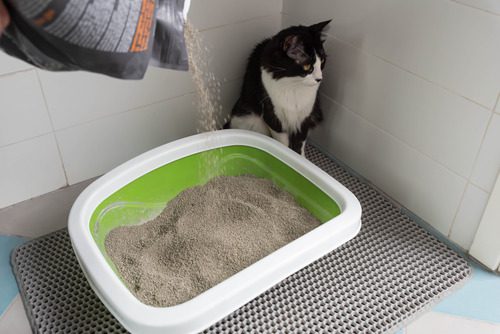Difficulty Urinating in Cats: What Your Next Step Is
Difficulty urinating in cats is a condition that can cause significant discomfort and can be a sign of potentially life-threatening health issues. This blog will guide you through understanding the symptoms, causes, and reasons to consult with a vet at Frontier Veterinary Urgent Care in Milwaukee, WI. If you notice any signs of difficulty urinating in your cat, it’s vital to seek professional help promptly. Please feel free to call us at 262-226-2055 for immediate advice and to schedule an appointment.

Signs of Urinary Trouble in Cats
Cats are notorious for hiding discomfort and illness, which makes detecting urinary problems challenging. Symptoms that may indicate difficulty urinating include:
- Frequent trips to the litter box
- Straining or vocalizing in the litter box
- Blood in the urine
- Licking the urinary opening
- Irritability or aggression
- Vomiting or lethargy
Understanding these signs can help you catch potential problems early before they develop into more severe conditions.
When to Contact Frontier Veterinary Urgent Care
If you notice any of the above symptoms, it’s important to contact a veterinarian as soon as possible. Early intervention is key to preventing complications, such as urinary tract infections or bladder stones, which could require more invasive treatments or even surgery.
Causes of Urinary Difficulties in Cats
Several factors can contribute to urinary difficulties in cats. Common causes include:
- Urinary Tract Infections (UTIs): While less common in cats than in dogs, UTIs can still affect felines, especially those who are older or have underlying health issues.
- Crystals or Bladder Stones: Crystals and stones can form in the bladder or urethra, partially or completely blocking the flow of urine.
- Feline Lower Urinary Tract Disease (FLUTD): This is a term for a variety of conditions affecting the bladder and urethra that cause similar symptoms.
- Other Health Issues: Kidney disease, diabetes, and hyperthyroidism can all cause symptoms of urinary difficulty.
Identifying the underlying cause is crucial for proper treatment and recovery, underscoring the importance of a professional diagnosis from your vet.
How Frontier Veterinary Urgent Care Can Help
At Frontier Veterinary Urgent Care, our team uses advanced diagnostic tools to determine the cause of your cat’s urinary troubles. These may include urinalysis, blood tests, ultrasound, and X-rays. Understanding the root cause helps in crafting an effective treatment plan.
Treatment Options
The treatment for difficulty urinating will depend on the underlying cause. We can prescribe medication such as antibiotics, pain relievers, or muscle relaxants if necessary. Special diets that help dissolve stones and crystals or promote a healthier urinary tract may be recommended. If there is a complete blockage, catheterization or surgery may be necessary to remove bladder stones or obstructions. Our team at Frontier Veterinary Urgent Care is equipped to offer these treatments and will work closely with you to ensure the best care for your pet.
Post-Treatment Care
After treatment, it is important to monitor your cat’s recovery and ensure they are urinating regularly without discomfort. Follow-up visits may be needed to check on progress and prevent recurrence of the problem.
How to Prevent Difficulty Urinating
Preventing urinary issues is key. Here are some tips to help keep your cat’s urinary tract healthy:
- Encourage your cat to drink plenty of water. Hydration is crucial for flushing out their urinary system.
- High levels of stress can contribute to urinary problems in cats. Providing a calm environment can help prevent issues.
- Regular exams help catch signs of urinary trouble early, even if your cat is not showing any obvious symptoms.
If you suspect your cat is having difficulty urinating, or if you have any concerns about their urinary health, please don’t hesitate to call Frontier Veterinary Urgent Care at 262-226-2055. Our expert team is here to support you and your cat with high-quality care and advice.
